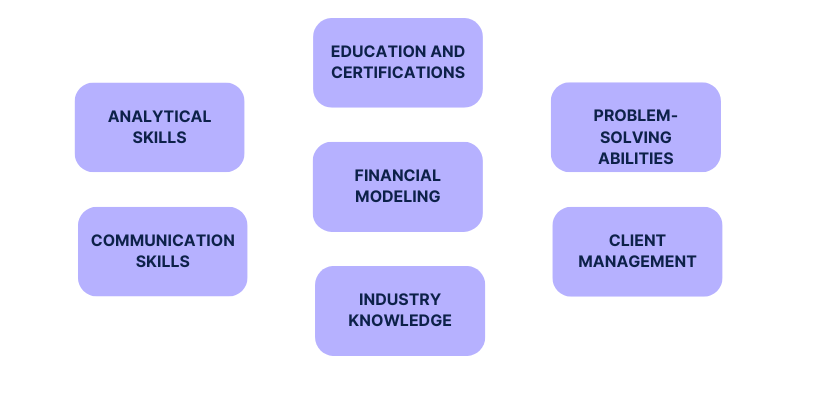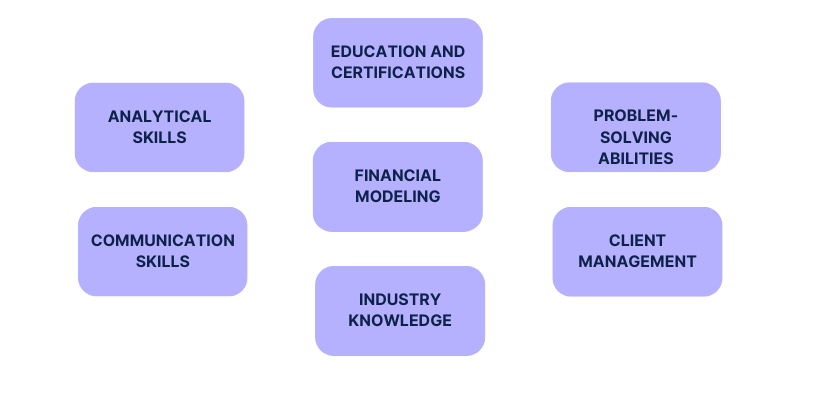How Do I Find The Right Financial Consulting Firm?
You may find yourself wondering which financial consulting firm aligns best with your aspirations. While some may be attracted toward prestigious MBB
In fact, choosing the right consulting firm for your career path can be a tough decision, particularly when considering their offerings in financial consulting. While top-tier firms all provide financial consulting services, your choice ultimately comes down to your specific interests and preferences.
To make an informed decision, it's essential to go into the details of each firm's specialization and client base. This can involve researching the types of projects they do and the industries they serve. Platforms like LinkedIn can be great for connecting with current employees and gaining insights into the firm's culture and focus areas.
Here are some questions you can ask during your research and interviews:
-
Can you provide insights into the specific areas of financial consulting that your firm specializes in?
-
What types of clients does your financial consulting practice typically serve? Are there specific industries or sectors that you focus on?
-
Can you share examples of recent financial consulting projects that your firm has undertaken?
-
How does your firm approach risk management within the context of financial consulting?
-
What sets your firm apart from others in terms of financial consulting services?
-
How do you stay updated on industry trends and regulations relevant to financial consulting?
-
Can you describe the typical career progression for consultants within your financial consulting practice?
-
What opportunities exist for professional development and mentorship within the financial consulting team?
-
How does your firm foster collaboration and knowledge-sharing among consultants working in financial consulting?
-
Can you provide insights into the geographic distribution of your financial consulting practice and any regional differences in focus areas?
-
How does your firm leverage technology and data analytics in the delivery of financial consulting services?
-
Can you speak to the firm's approach to diversity, equity, and inclusion within the financial consulting practice?
-
How does your firm ensure alignment between client goals and the solutions provided through financial consulting?
-
Can you describe the firm's culture and values as they relate to the financial consulting practice?
-
Are there any upcoming initiatives or growth areas within the financial consulting practice that candidates should be aware of?
These are just a few examples, but they will surely help you gain insights into the financial consulting practice of the firm you are interviewing at, and eventually help you make an informed decision.
During the interview process, take the opportunity to ask questions to understand the firm's approach to financial consulting and its alignment with your career goals. Pay attention not only to the firm's reputation but also to the quality of the individuals you'll be working with. Your future colleagues and mentors will have a big impact on your professional growth and job satisfaction.
Finally, while the thought of putting a prestigious brand name on your CV is undeniable, it's better to prioritize factors such as the firm's specialization, client base, office location, and the level of experience of your future colleagues. Being careful in considering these aspects and asking the right questions, you can make a well-informed decision that sets you on the path to a fulfilling career in financial consulting.
Beyond Financial Consulting
But beyond what we have just discussed, financial consulting is not only about providing expert opinions but just like any other branch of consulting, it is also about creating long-term relationships with clients. Consultants in this field act as trusted advisors, guiding businesses and individuals through complex financial decisions. They offer tailored solutions that align with the goals and desires of the clients, helping them overcome challenges and seize opportunities.
One aspect that sets financial consulting apart is its interdisciplinary nature. Consultants often collaborate with professionals from various backgrounds, including finance, accounting, law, and technology, to deliver what we call “360 degrees” solutions to clients. This approach allows for a holistic understanding of clients' needs and enables consultants to offer innovative strategies that address multiple dimensions of financial challenges.
Moreover, financial consulting is not confined to traditional office settings. Consultants often engage in on-site visits, where they immerse themselves in clients' operations to gain firsthand insights into their financial systems and processes. Financial consultants frequently collaborate closely with their clients, to the extent that one might feel fully part of the client's team.
In addition to client-facing roles, financial consulting firms also offer opportunities for internal growth and development. Consultants have access to a wealth of resources, including training programs, mentorship initiatives, and networking opportunities, to enhance their skills and advance their careers within the firm. This commitment to professional development ensures that consultants remain updated on industry trends and best practices, enabling them to deliver high quality value to clients.
Furthermore, the demand for financial consulting services is not limited to specific industries or sectors. From technology startups to multinational corporations, businesses of all sizes and across various sectors rely on financial consultants to achieve their strategic objectives. This diverse client base offers consultants the opportunity to work on a wide range of projects, enriching their experience and expertise in the process.
In conclusion, financial consulting is a dynamic and multifaceted field that offers ample opportunities for growth and impact. Whether you're a seasoned professional looking to transition into financial consulting or a recent graduate, a career in financial consulting promises excitement, challenge, and fulfillment.
I wish you the best in your journey of financial consulting, and if you ever have any questions or want to book a coaching session, feel free to do so through the Platform.





























